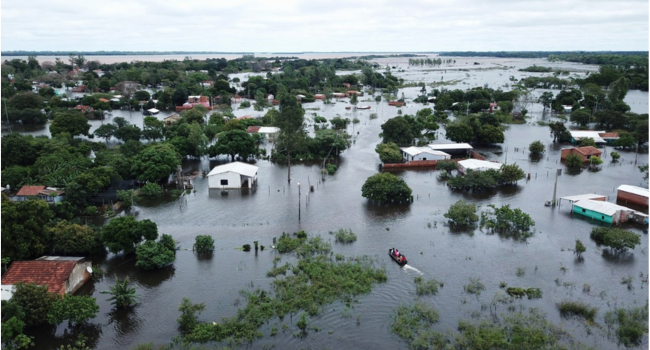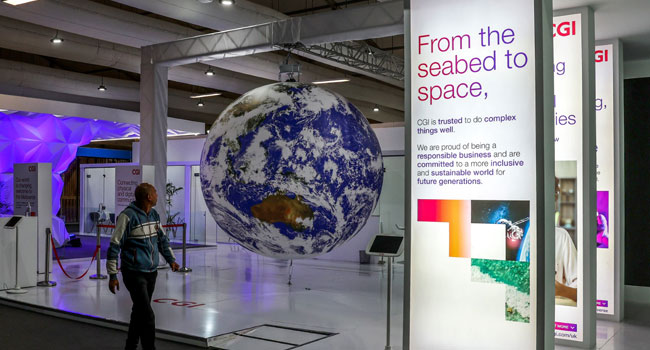
Google on Wednesday said it is tweaking widely used tools for getting around, shopping and more to let users factor climate change into daily routines.
Google is among the Big Tech firms that have made pledges and investments to reduce the environmental impact of their operations with moves such as making power-hungry data centers carbon neutral.
New features unveiled on Wednesday provide users with ways to help in the effort, whether it be driving routes that result in less exhaust being spewed from cars or shopping online for energy-efficient appliances.
“In all these efforts, our goal is to make the sustainable choice an easier choice,” Google chief executive Sundar Pichai said while briefing journalists on the latest features.
Artificial intelligence was put to work in Google’s free Maps service in the United States to show people the most fuel-efficient routes to destinations even if they are not the quickest.
“It defaults to the route that uses less fuel when the estimated time of arrival is similar,” Pichai said.
“We believe the feature will have the same impact in the next year as taking over 200,000 cars off the road.”
The feature is to be rolled out in Europe in 2022.
Google has also started work on a project to use AI to optimize the efficiency of traffic in cities to reduce the time vehicles spend idling at intersections.
Carbon dioxide emission information is being added to a Flights service for booking travel by air.
“We’re putting these numbers in context by labeling flights that have significantly higher emissions, and adding a green badge to flights with significantly lower emissions,” Google said in a post.
The metrics will also show how much more CO2 is attributed to business or first-class seats, which give passengers more room.
In the coming months, Google will start adding details about how eco-friendly hotels are so people can opt for lodging that is kinder to the planet.
Google moves include weaving environmental impact information into its services for financial investing or shopping for appliances and providing more insights into the cost-benefits of electric vehicles.
“Individually, these choices might feel small but when you multiply them together across our products, they equal big transformations for the planet,” Pichai said.
“It’s going to take all of that to avert the worst consequences of climate change and there’s no time to waste.”
AFP




